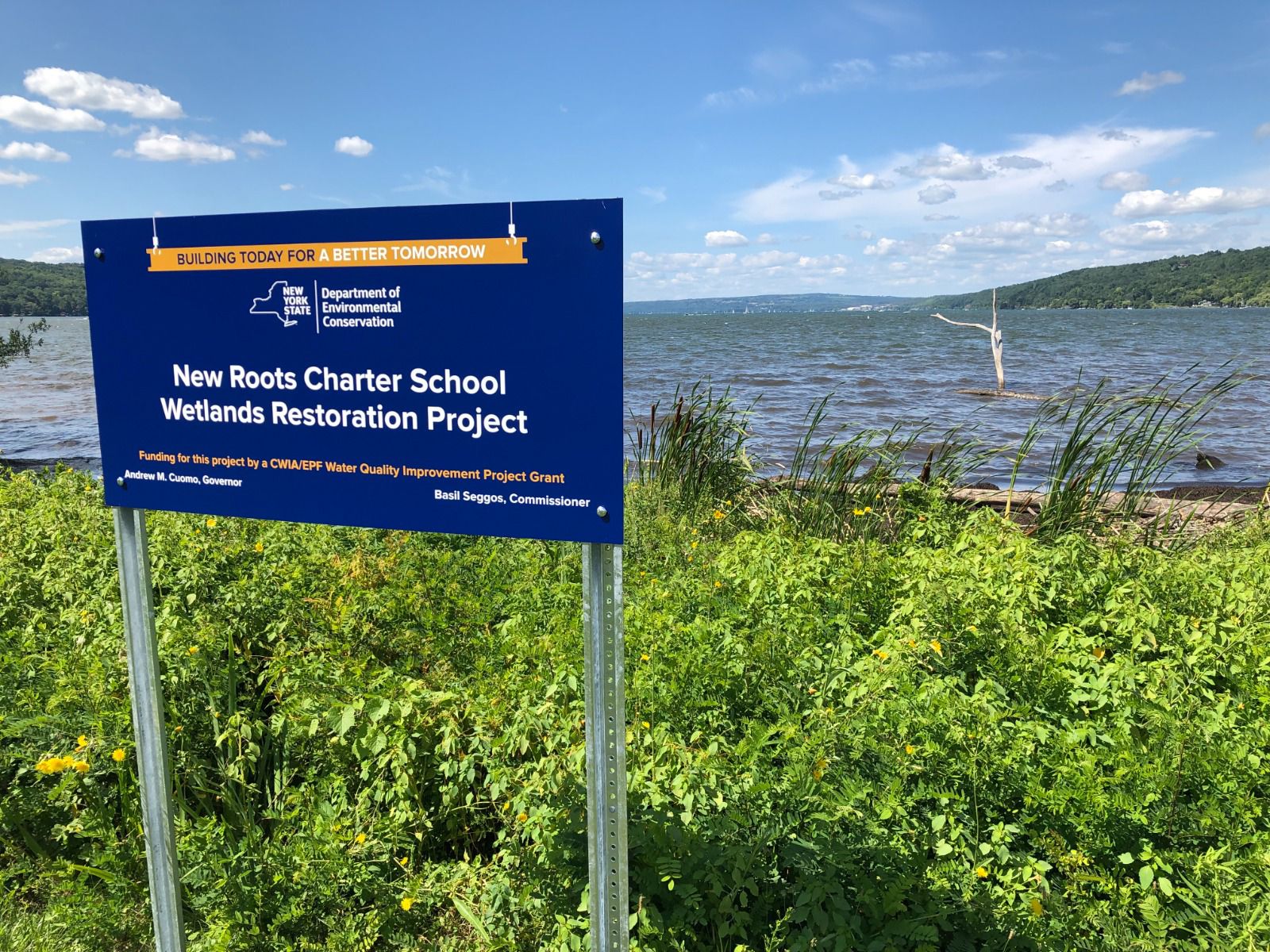By PDG Jeff Smith, Brian Braginton-Smith, and Tina Nilsen-Hodges
Could Green Schools Be the Key to Unlocking Green Careers?
How we educate our children – including preparing them for green careers – is crucial to a sustainable future for our planet. A genius in building partnerships, PDG Jeff Smith of the CNY multi-district in New York State is co-leading ongoing consultations among Rotarians, government, industry, and educational leaders to build a vibrant, environmentally-sustainable regional economy. For this article, he requested front-line reports on two Green Schools from Rotarians Brian Braginton-Smith, Executive Director of the Cape Cod Watershed Institute in Massachusetts, USA, and Tina Nilsen-Hodges, Principal and Superintendent of the New Roots Charter School in New York State. Among his many environmental leadership roles, Jeff serves as secretary of ESRAG’s Eastern North America Chapter.
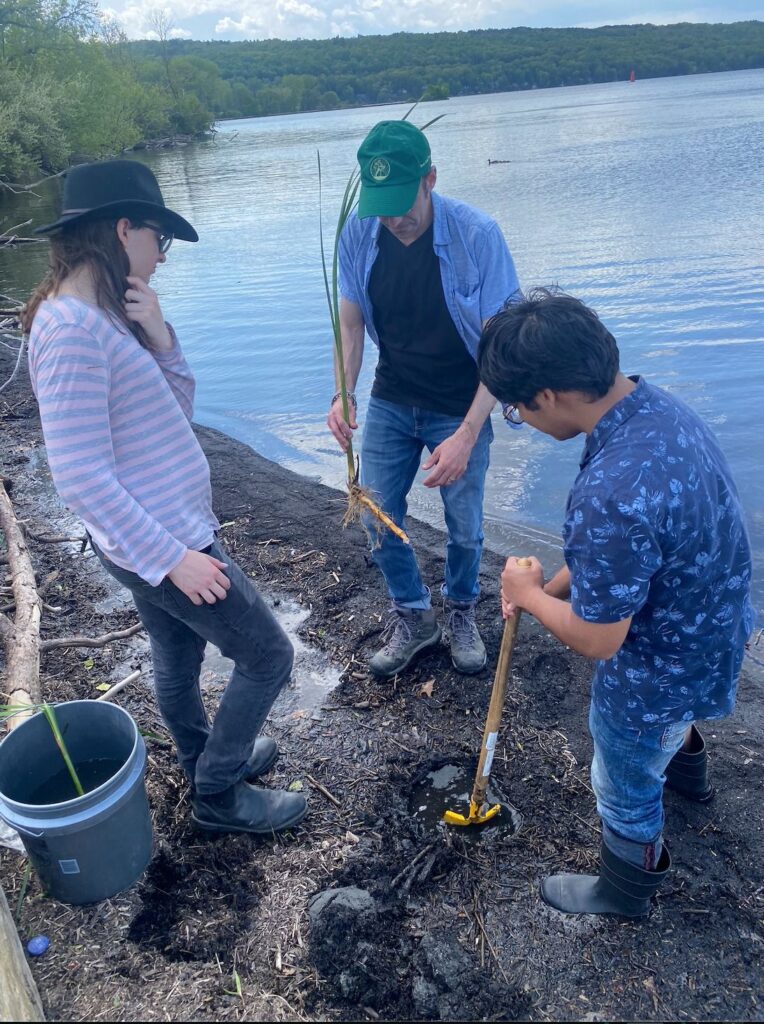
Green School students tending to water plants
Coastal Massachusetts: “Led by the Cape Cod Watershed Institute of the Lewis Bay Research Center, the Connected Communities project on Cape Cod is taking a proactive approach to climate change by starting with K-12 education,” writes Brian Braginton-Smith. “We are equipping a network of schools with a holistic strategy for attaining net-zero carbon emissions and net-zero water discharge. The strategy involves micro-grids, clean energy generation, agriculture, bio-char, STEM Education and workforce development. We’re providing experiential learning on all aspects of achieving the climate and water goals.
“The Lewis Bay Research Center is a team of educators, ocean scientists, explorers and prophets, working together to help save our oceans and educate our society on marine science, exploration and the importance of our world’s oceans to our past, our present and out future. The organization is now also focused on experiential education, lifelong learning and workforce training through the Cape Cod Watershed Institute Center. The goal is to provide solutions that make a long-lasting difference that can be replicated across Cape Cod, our nation and our planet.
“A key part of the project is a 10,000 square foot learning center. FIRST Scandinavia and Newton America have made the Watershed Institute a flagship operation. Newton develops partnerships with municipalities to develop learning environments (called Newton Rooms) and teachers for STEM education. These programs are customized to the communities in which they operate. In the instance of Cape Cod, the focus is the achievement of net-zero carbon emissions and net zero water discharge.
“Project Green Schools has noticed the work taking place on Cape Cod and recently awarded two Cape Cod Schools, Riverview and Sandwich, with the Project Green School Innovation Award. Project Green Schools focuses on developing the next generation of environmental leaders. The non-profit has programs at 6,500 schools around the globe and makes a great partner for the Watershed Institute’s goal of replication of solutions.”
Cultivating Green Innovations
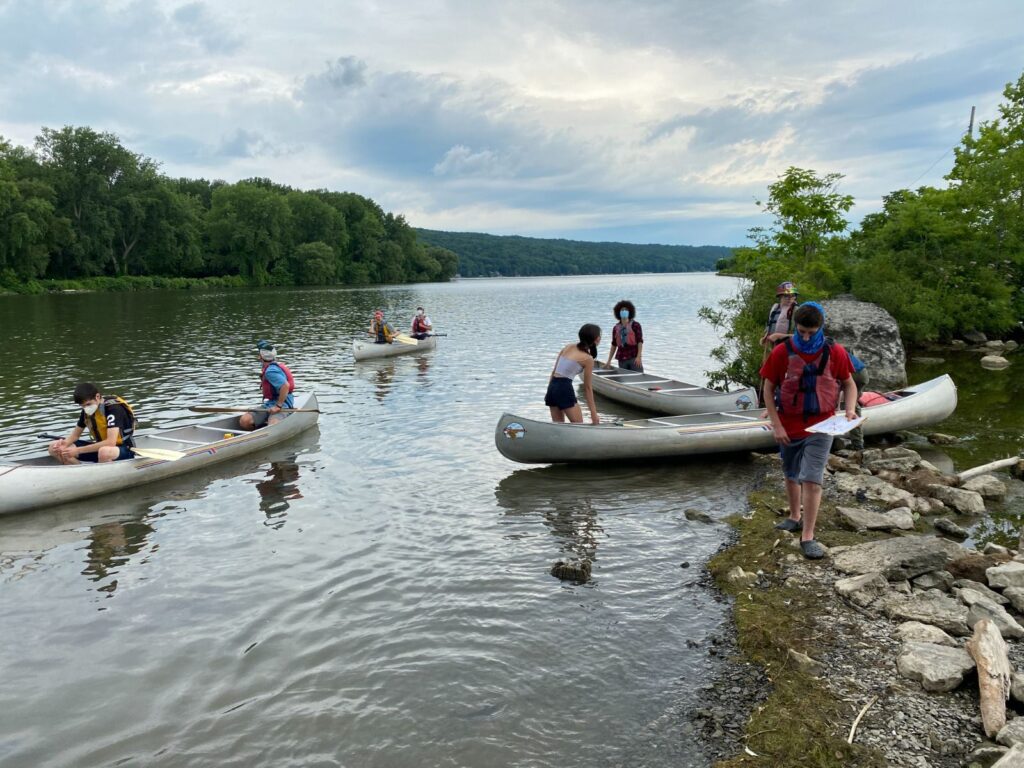
New Roots students
Southern Tier of New York State: New Roots Charter School in Ithaca, New York, is also a member of Project Green Schools. “We are evaluating all of the green education elements of the Connected Communities project for application in Ithaca,” writes Superintendent Tina Nilsen-Hodges. “Established in 2009, New Roots Charter School is a U.S. Department of Education Green Ribbon School, a recognized leader in the Green Schools National Network, and member of the Tompkins County Climate Protection Initiative.
“New Roots Charter School lies within the territory of the Gayogo̱hó:nǫʼ (Cayuga Nation). Our school community gratefully acknowledges the Gayogo̱hó:nǫʼ for their enduring stewardship of this place throughout the centuries, and their generosity in educating people in their territory about how to live in good relation to the earth and with our neighbors.
“Redesigning secondary education to meet the regional challenges presented by global climate change, New Roots engages underserved youth in interdisciplinary, systemic analysis of climate change and its root causes, focusing on developing capacity for entrepreneurial and solutions-oriented thinking through project- and community-based learning. New Roots students learn green job skills and receive environmental literacy certification from the U.S. Department of Labor by taking the nationally-recognized Roots of Success course as a starting point for exploring green careers in the region. We are very grateful to community partners such as Ithaca ReUse and the City of Ithaca for providing opportunities for our students to participate in community sustainability initiatives, an experience that is at the heart of a New Roots education.
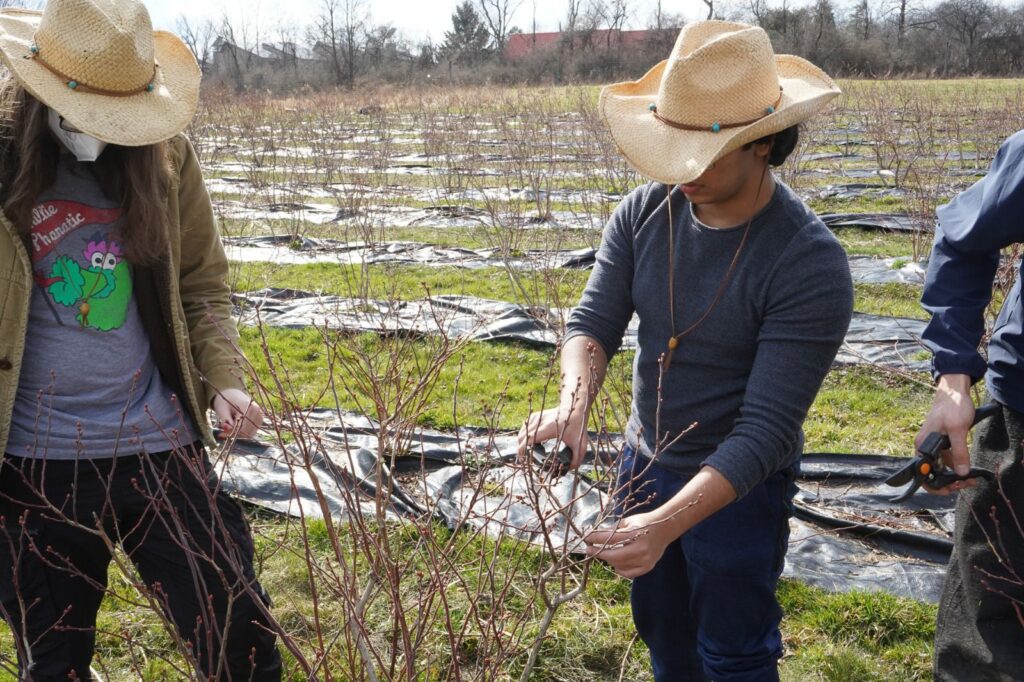
New Roots students wetlands work
“New Roots seniors create action plans for local sustainability issues related to U.N. Sustainable Development Goals through their senior capstone projects. A senior capstone project initiated in 2016 developed into an ongoing collaboration with members of the Cayuga Nation on the Cayuga Wetlands Restoration Project, which employs indigenous knowledge to restore wetlands to improve water quality. Funding from the New York State Department of Environmental Conservation established the Youth Ecological Restoration Corps, which offers students paid summer internships.
“In the spirit of Ithaca’s Green New Deal, New Roots Charter School is engaging students in evaluating all of the elements of the Connected Communities project to prepare youth as the leaders of a transition to a more resilient, sustainable regional system for energy, food, water, and transportation, while caring for the local ecosystems that sustain us.”
The project-lead of Connected Communities, Brian Braginton-Smith is a member of the Research Center and a technical advisor to ESRAG. Brian believes that his role in ESRAG facilitates the development of partnerships and replication. Through his contacts in ESRAG, he has been collaborating with the Southern Tier of New York State for over three years. Some of the many leading-edge efforts in the Southern Tier include:
- Ithaca Green New Deal – A pledge to achieve net zero carbon emissions by 2030.
- Ithaca 2030 District – One of 24 cities across North America reducing emissions in city buildings.
- Finger Lakes ReUse – Long-established non-profit focused on reuse, partnering with Cornell University and CR0WD. Circularity, Reuse, and Zero Waste Development. See ESRAG’s 2023 article on the huge economic benefits this nonprofit delivers to Ithaca.
- Binghamton University led New Energy NY to improve the US supply chain for batteries. Binghamton is now a Federal Technology Hub for batteries.
- Best practice for siting of large-scale wind and solar projects.
- Rotary District 7170 strategy for the Susquehanna Watershed.
- Many programs dedicated to STEM development, workforce and under-served communities and populations.
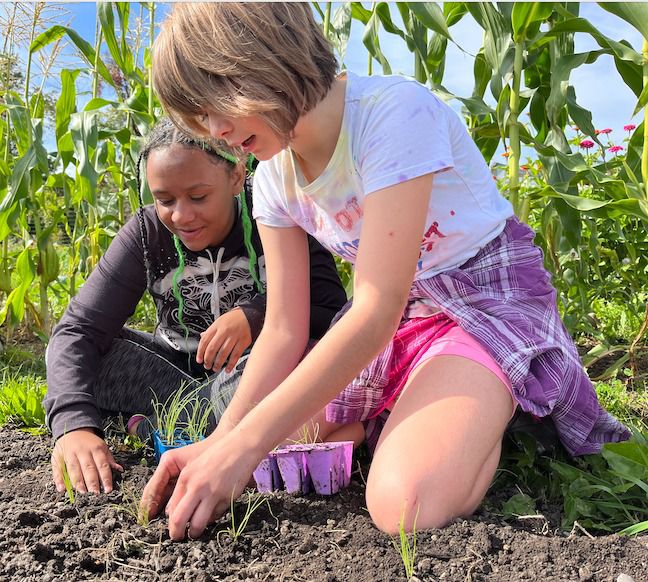
New Roots students
Brian notes the two regions are searching for collaboration opportunities throughout the Northeast including Canada. “I am excited about discovering the New Roots Charter School in Ithaca and its potential for Green Education,” he says. “They are also focused on serving under-served populations and developing a relationship with Native Americans.”
Green education is a critical element for achieving the climate goals we have to achieve. The next generation has the primary responsibility for achieving the necessary goals by 2050. Brian has been describing the Cape Cod Connected Communities Project to many funding organizations. The State of Massachusetts has earmarked $1.3 million of funding. The US Departments of Energy (DOE) and Agriculture (USDA) have expressed interest. The Cape Cod Watershed Institute has also submitted an EarthShot Prize proposal as one of five projects nominated last fall by ESRAG. Ithaca ReUse is part of another coalition in the running for the 2024 EarthShot Prize.
.Photo credits: New Roots Charter School

